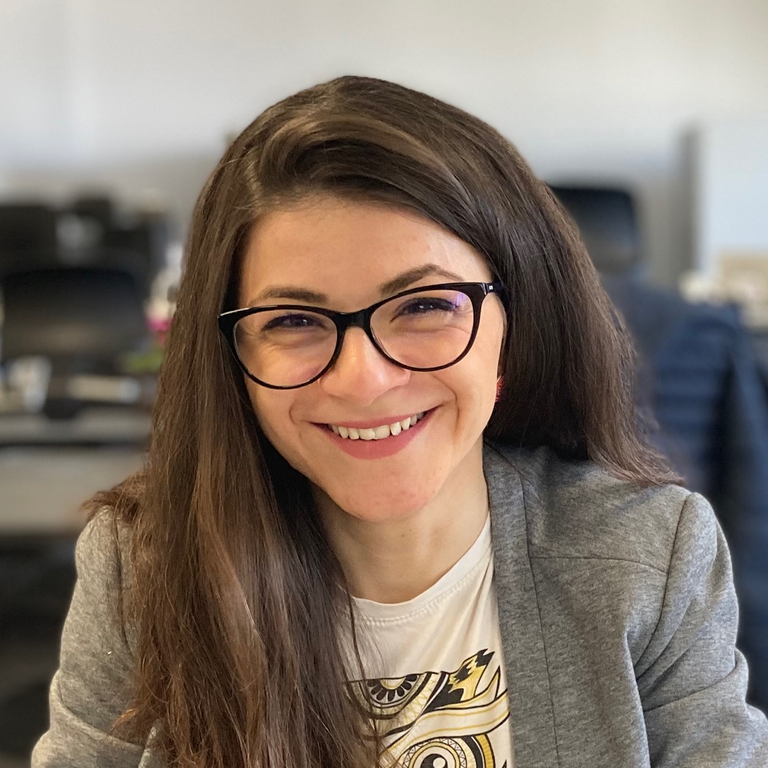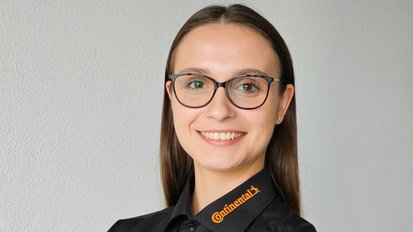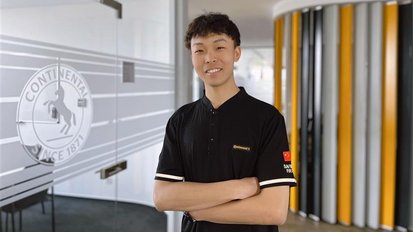All roads lead back to Continental
1. How did the journey with Continental Sibiu begin?
My journey began in 2016, when I left a company with Romanian capital, hoping for a future full of surprises and the desire for self-improvement. I considered that i had enough experience gained in the mechanical field, and that it would not be bad to make a transition towards the modern, towards our future, which is increasingly being discussed as being electrical and automated. I didn’t know very well what I was going to do, but I was sure that I would be as captivated by the novelty as before, so I discovered a lot of things that made me glad that I expanded my area of knowledge in the electronic and electrical components, basically to really work day by day in the show “ How it’s made”
2. Challenges and lessons you learned in this period of time
Challenges are everywhere and I think this is a fact given by the nature of my job as a Quality Engineer, in which I have to ask difficult questions to block certain situations that seem to work in a normal flow but not perfectly systematic and to try to communicate as correctly as possible the motivation behind my job as an automotive “policeman” so that it is understood that the quality department is a support function that it helps to improve everything that already exists, but it creates an impact on us in costs and efforts. The hardest thing I find is to convince people of the benefits of change. Once we achieve this, the progress is known.
3. Departure and return to Continental Sibiu
In general, I tend to get attached to the job, to the people I work with and implicitly to the work itself that I do with all the dedication I have. It was the same when I started to flirt with the idea of trying a different type of job, to experiment in large part and to see if what I do is what really suits me or another job, another style would be just as right for me. So, I sprouted the idea of going all the way to the quality side, but on quality suppliers, to expand my knowledge and the processes to interconnect in the bigger picture that I wanted. Unfortunately, at the time, at Conti there were no positions on SQM, so I tried it at another company. The work there was extremely useful, rich in knowledge and so were the people who were very open, so I did not have an external/objective reason why I would not have stayed, but I missed very much, subjectively, the idea of being in the middle of the action, of understanding and seeing the equipment you work with, of doing all kinds of experiments to find technical solutions together with colleagues. So, as I like to call it, the “longing for pieces” was one of the main reasons that made me consider coming back to Continental. Of course, there are colleagues who are not at all few, the presence of which I enjoy whenever we meet, somehow, offering this pleasant feeling of community
4. Future plans?
The plan is as simple as possible: To reach the great performance of balancing your professional life and personal life. At the moment, I’m working on this, because a man can be good at what he does when he’s also in charge of himself, he becomes inspired when he has the resources to move mountains and give directions to the people in his team and pave the way to success with them. When I reach that fragile balance, then maybe I will have in mind other opportunities that the company offers, which are not at all few. In the short term, I want to obtain my certification as a VDA 6.3 auditor this year and to study as thoroughly as possible the production processes for the product for which I am responsible.
5. What would you recommend to people who are thinking of leaving the company?
It’s okay to make changes. It’s okay to want to know other “territories”, but you can’t appreciate anything unless you take a step back and analyze before you make a decision. After all, these people do not leave the company itself, but leave some status quos that in the moments seem to no longer suit them, no longer conform to what they want and what they find themselves as a fit at the time. So, I think I’d challenge those people to think for a long time what their honest motivation is at the core, and it’s only after they’ve found that, to act in accordance with that motivation, that doesn’t necessarily mean leaving the company





